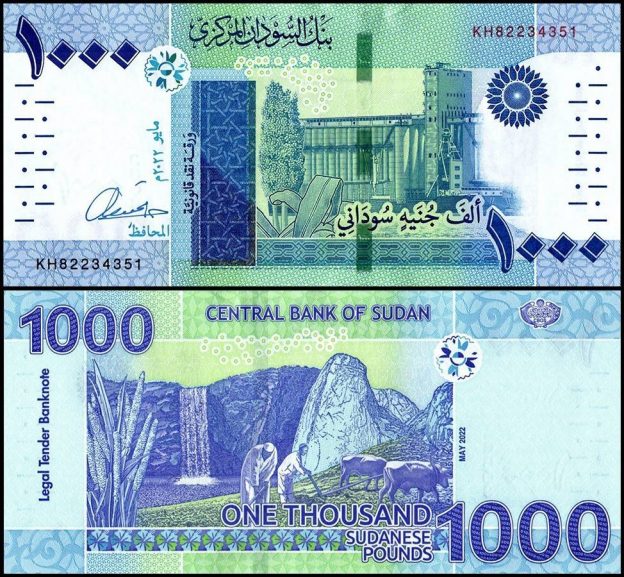

In a bid to stabilize its war-torn economy, the Sudanese government has introduced new banknotes, launched in December 2023. Finance Minister Jibril Ibrahim announced the initiative, claiming success in the effort to render looted funds by the Rapid Support Forces (RSF) worthless, although he did not specify the amounts deposited [7601750a]. This move comes as the country grapples with a severe economic crisis exacerbated by a two-year conflict between the army and the RSF, which has devalued the Sudanese pound by three-quarters [7601750a].
On January 1, 2025, protests erupted in Port Sudan against a partial currency swap that required citizens to exchange old 500 and 1,000-pound notes. Initially, the government set a deadline for this exchange, which was later extended to January 6 by Information Minister Khalid al-Aiser [80b19d88]. The Sudanese pound has dramatically declined in value, plummeting from 500 to 2,500 pounds per dollar since April 2023, largely due to the ongoing conflict [80b19d88].
The introduction of the new banknotes requires citizens to deposit old notes to receive the new 500-pound and 1,000-pound notes, with limited daily withdrawals allowed. Critics argue that this system excludes millions from the financial system, particularly in RSF-controlled areas, where the RSF has banned the new banknotes [7601750a].
The protests reflect widespread discontent with the government's handling of the economic crisis, as many citizens struggle to make ends meet amid soaring inflation and a lack of basic services [80b19d88]. The situation remains tense as the government attempts to implement the currency swap while facing mounting pressure from the public and the ongoing conflict [80b19d88].